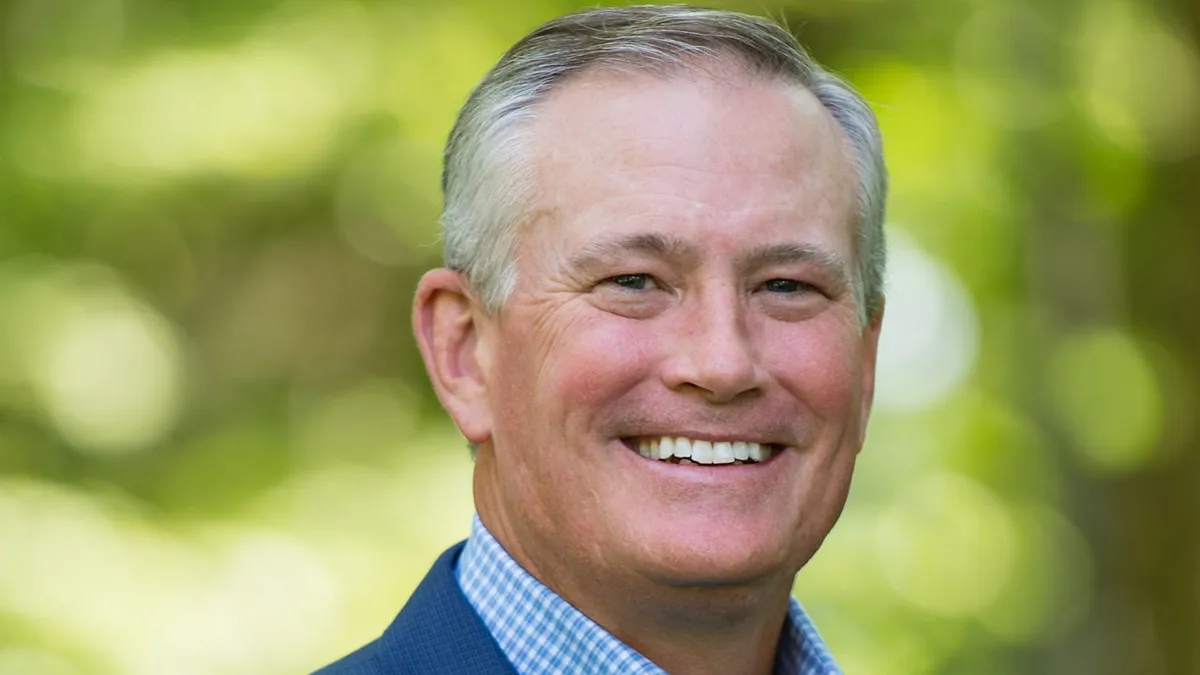Dan Guthrie was working as an expat managing sales for a pharmaceutical company in Singapore when the SARS outbreak took place.
So as COVID-19 began to spread more widely, “I probably, admittedly, had a little bit of hubris and thought ‘hey, I’m maybe better prepared than most.' But certainly this crisis has far eclipsed what I dealt with back then,” said Guthrie, who now serves as chief commercial officer at Neuronetics, which specializes in transcranial magnetic stimulation.
Delivered in a physician’s office, TMS is a neuromodulation-based treatment regimen to target depression and other chronic psychiatric and neurological disorders. Despite an arguably heightened need for mental health supports during the pandemic, procedures with Neuronetics’ device were largely sidelined beginning in late March as providers shut down and patients grew uncomfortable with leaving home to seek care.
The Malvern, Pennsylvania-based company is among smaller medtechs working through financial challenges, exacerbated by sudden declines in product use and purchasing, and those related to rebooting business now that most of the U.S. is easing barriers to resuming elective care.
In early April, Neuronetics announced a plan to save cash and cut its staff by about 45%, or 96 employees. Capital equipment sales haven’t come to a total halt, but system placements have “no doubt” declined since the onset of COVID-19, Guthrie said in a recent interview with MedTech Dive.
Neuronetics went public in 2018 with a target price of $17; it now trades at below $2 with a market cap of approximately $34 million.
It received a $6.4 million loan from the congressional bailout Paycheck Protection Program earlier this year. It ultimately opted to repay the loan following press scrutiny of some public companies receiving support before independent firms, including call-outs of Neuronetics in Philadelphia news outlets.
One effort that’s helped as patients and providers seek a return to more normal care routines: sourcing and providing personal protective equipment to the practices using Neuronetics’ systems. Guthrie said the company counts the service as part of its cost of operating machinery.
But for a company like Neuronetics whose treatment doesn’t typically necessitate the use of PPE, it’s been a bit challenging to acquire the highly sought after equipment and quickly develop appropriate guidelines for use for providers. Guthrie, whose resume includes time at Zimmer Biomet and Medtronic, said he and colleagues who have worked in the medtech industry for quite some time were able to leverage relationships to find suppliers.
Still, it’s easy to get elbowed out by larger organizations with ongoing need for PPE, and that competition cuts across different lanes of medtech.
Anthony Fernando, CEO at TransEnterix, said his digital surgery company has faced a similar challenge as some procedures with its robot resume and it seeks to safely reactivate teams. “We kind of get thrown to the bottom of that list.”
Compared to some larger, more diversified medtechs, TransEnterix's surgical robot technologies are its sole product line, and as much as 90% of the associated procedures are considered elective. After seeing total procedures rise 116% in February, a significant chunk were put on hold during March and beyond and lease agreements were backlogged.
Fernando said the company was counting on those procedures to show investors its product is viable and can grow. "Liquidity becomes a huge issue," he said. TransEnterix, which is also public and both received and retained a PPP loan, was in the midst of restructuring prior to the pandemic. That alone was enough of a challenge, "but the COVID piece was not part of the plan," he said.
Fernando is on the board of AdvaMed Accel, the trade group’s division devoted to the needs of medtechs with yearly U.S. sales below $100 million. Lately, the group has been focused on ways to help smaller companies survive the pandemic, including launching an effort to crowdsource the PPE needs of a number of small companies to establish a sizable order. An AdvaMed spokesperson said it's too early to tell how many companies will participate in the program.
Nadim Yared, CEO of venture-backed medtech CVRx, is also part of the group and his company is a pilot participant.
"Larger companies have more access than smaller companies [to be able to] buy bulk supplies. We felt as CEOs of small companies that we are not only left behind, but kind of discriminated against, simply because we don't have the buying power [to negotiate] big-volume deals with suppliers to be able to get their attention," Yared said.
An added challenge for Yared's company: its product was hardly even on the market in the U.S. before COVID-19 drastically changed healthcare.
CVRx received FDA approval last August for its Barostim Neo device to treat advanced symptoms of heart failure and began rolling it out at select institutions in January. But direct selling activities in the U.S. slowed down after March, Yared said, and the formal marketing launch planned for the Heart Rhythm Society meeting in May was derailed when the event was canceled due to the pandemic.
Many activities related to commercializing the device can still happen remotely, including work by hospitals' value assessment committees, Yared said.
But despite recent signs of rebound for in-person activities like face-to-face meetings between physicians and patients to talk about a procedure, "we're still far behind where we used to be," Yared said. Overall, the pandemic experience is causing the industry to re-evaluate its communication channels. "It's a bit early to understand how much of this change will be done after the pandemic. We will see."

















